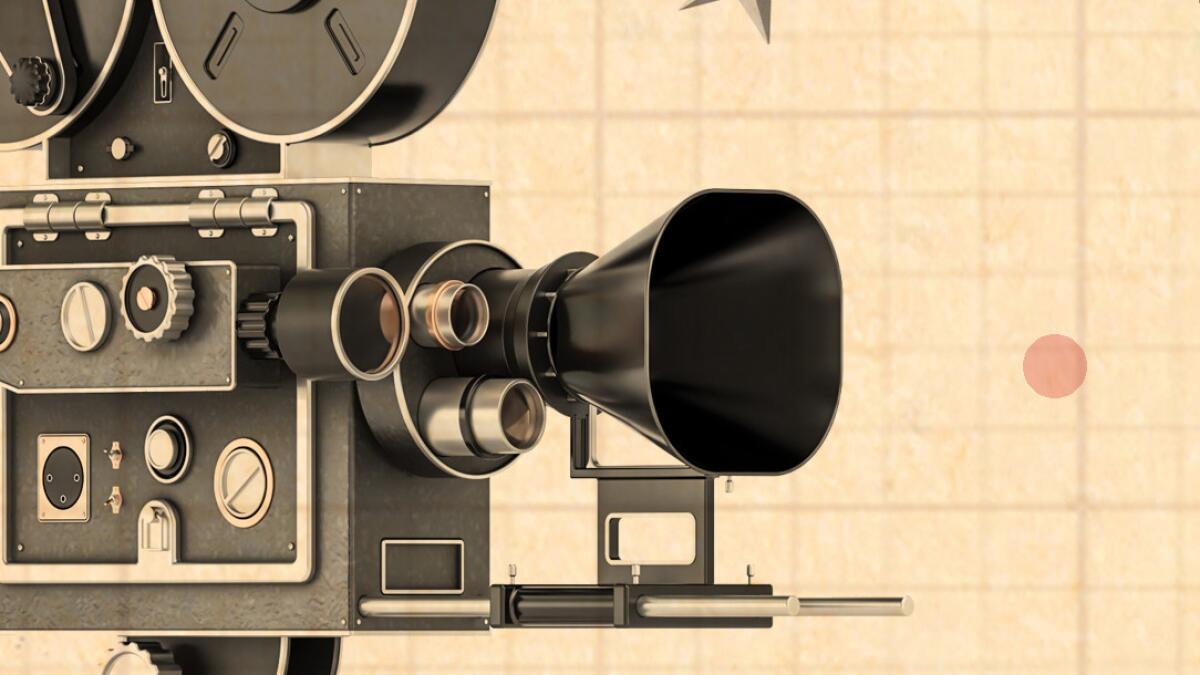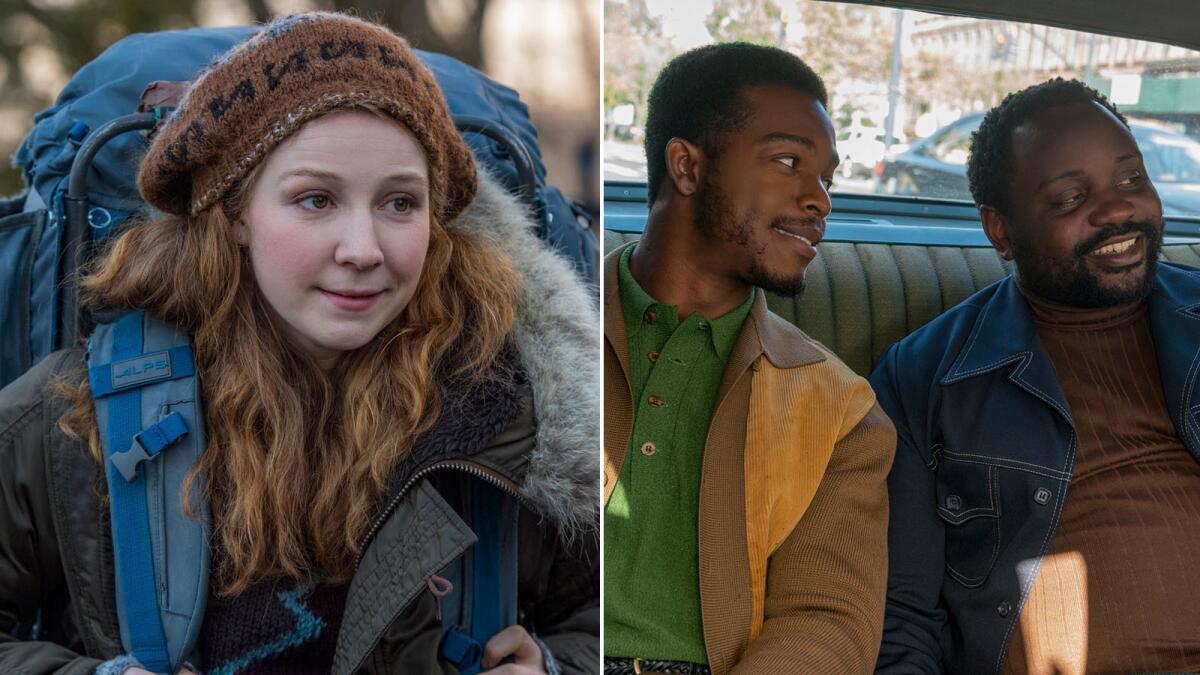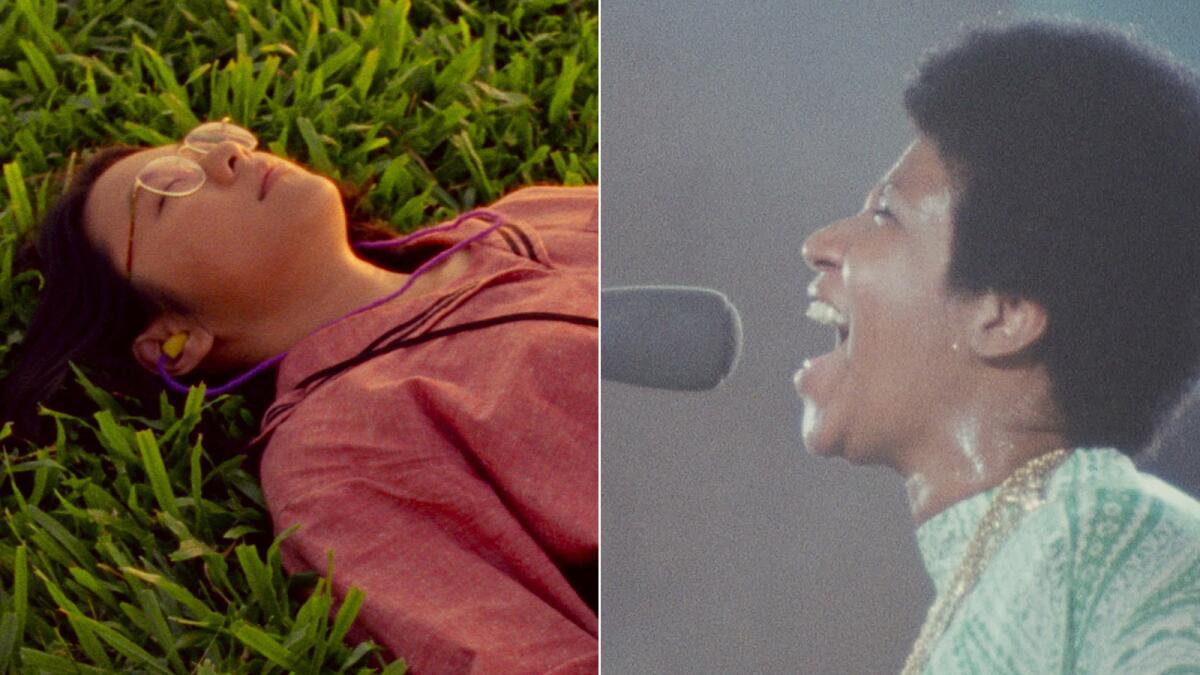Justin Chang’s best movies of 2018: ‘Burning’ and ‘First Reformed’ lead a year of mystery

- Share via
“To me, the world is a mystery.”
That sad, simple line — as fitting an epitaph as any for 2018 — arrives late into the exquisitely unnerving South Korean drama “Burning,” the best new movie I saw this year. The speaker is a troubled young man and aspiring writer named Jong-su (Yoo Ah-in), who over the course of the movie will grapple hard with that mystery, using his powers of observation to illuminate, as best as he can, the pain of living in a world that has long passed him by.
In time a rival surfaces, a lady vanishes and, after much searching, an author finds his story. It has been suggested that the movie’s writer-director, Lee Chang-dong, who was a successful novelist before he turned to filmmaking, sees something of himself in Jong-su — a grimly funny thought, especially if you know the movie’s outcome. It’s one of many puzzles in a story that ultimately respects its mysteries too deeply to solve them for us.
Something similar could be said of Paul Schrader’s “First Reformed,” the rare religious movie to understand that the deepest convictions often arise from a posture of doubt. Riddles and uncertainties similarly thwart the protagonists of Lucrecia Martel’s “Zama,” Alice Rohrwacher’s “Happy as Lazzaro,” Chloé Zhao’s “The Rider” and Lynne Ramsay’s “You Were Never Really Here,” in which four different men — directed, it should be noted, by four different women — are set adrift in the same cruelly indifferent world.
But if 2018 abounded in bleak, solitary male journeys, it was also flush with thrilling stories of female solidarity under hugely improbable circumstances. You could draw a through-line from the cash-strapped bar workers of “Support the Girls” (the most resonant movie title of 2018) to the desperate robbers of “Widows” to the intrepid explorers of “Annihilation” to the scheming witches of “Suspiria,” and if you have about nine free hours to spare, that’s quite a quadruple bill that awaits you. You could even make it five and throw in “The Favourite”; solidarity may not be the word, exactly, but by the end of this superb costume drama you more than grasp the killer instincts a woman needed to survive, let alone thrive, in an 18th-century man’s world.
And who will survive the 21st-century man’s world, one that is gradually awakening to the long-suppressed voices of the abused and neglected, but is nonetheless still being torn apart by political rage, racial discord and environmental calamity? That question falls beyond my credentials as a critic, but I am grateful, at year’s end, that so many movies pondered it with such intelligence and artistry. In a spirit of reciprocal generosity, I have listed not 10 but 20 of them, as a series of paired titles. In a year when the movies seemed to be in such close conversation with each other, it seemed cruel to separate them.
Here are my favorite movies of 2018:
1. “Burning” / 2. “First Reformed”
A radiant, ominous and spellbinding adaptation of a Haruki Murakami short story by way of William Faulkner, “Burning” reaffirms the South Korean filmmaker Lee Chang-dong (“Secret Sunshine,” “Poetry”) as a master of world cinema. After a too-long absence from filmmaking, he has returned with a shape-shifting tour de force of psychological unease, grounded by three of the year’s most layered performances, from Yoo Ah-in, Jeon Jong-seo and Steven Yeun.
Like “Burning,” Paul Schrader’s “First Reformed” follows a man on a desperately lonely quest for meaning. It’s a story of spiritual alienation, thwarted longing and violent catharsis that Schrader has been telling since “Taxi Driver,” and he tells it again here with crystalline intelligence and astonishing moral fury. It’s a career culmination for him and his star, Ethan Hawke, and a movie to restore your faith in cinema.
3. “Zama” / 4. “Black Panther”
Two movies that could not be more formally, narratively or commercially dissimilar both confronted the grim legacy of colonialism with enormous intelligence and imagination. “Zama,” Lucrecia Martel’s feverishly brilliant and dryly funny epic, envelops us in the existential rot of a Spanish crown official (the great Daniel Giménez Cacho) stationed in a remote Paraguayan backwater. The filmmaking is so vivid that you can practically feel his moment and his world wasting away.
Ryan Coogler’s “Black Panther,” the rare Marvel comic-book movie that deepens emotionally with every viewing, gets at the same truths from a radically different angle. Its thrillingly utopian vision of Wakanda offers a heartbreaking reminder of what might have been, but also what still could be.
5. “Private Life” / 6. “If Beale Street Could Talk”

It was a terrific year for filmmakers named Jenkins — and for New York ensemble movies about long-term relationships and the families that come together, lovingly but imperfectly, to get them through hard times. In her pitch-perfect marital dramedy, “Private Life,” Tamara Jenkins approaches a couple’s infertility with limitless wisdom, humor and compassion, drawing superb performances along the way from Paul Giamatti, Kayli Carter, Molly Shannon and especially Kathryn Hahn.
The warmth emanating from the East Village apartment in “Private Life” feels curiously of a piece with the glow suffusing a radiant young Harlem couple in “If Beale Street Could Talk,” Barry Jenkins’ stunningly lyrical adaptation of James Baldwin’s novel. A passionate mix of the political and the poetic, awash in intense colors, breathtaking music and whorls of dreamy cigarette smoke, it seems to have stumbled on an entirely new cinematic love language.
7. “The Rider” / 8. “Western”
The classic western, a genre that has occasioned no shortage of premature obituaries, experienced something of a resurgence this year with the Coen brothers’ “The Ballad of Buster Scruggs,” the Zellner brothers’ “Damsel” and Jacques Audiard’s “The Sisters Brothers.” The two finest examples, for me, were also the subtlest in their engagement, superbly acted by non-professional actors and directed with exquisite sensitivity to character, landscape and cultural nuance.
In “The Rider,” her piercing portrait of a bronco rider of Lakota descent, Chloé Zhao asks what happens when a man loses his hold on the only dream, the only way of life, that he and his community have ever known. In “Western,” her incisive look at culture clash in a contemporary Bulgarian village, German director Valeska Grisebach examines lives similarly constrained by geography, tradition and circumstance.
9. “Shoplifters” / 10. “Happy as Lazzaro”
No, Alfonso Cuarón’s much-adored “Roma” didn’t make it to Cannes this year, thanks to a tedious feud between Netflix and the festival that led some to dismiss the latter as hopelessly out of date. That didn’t stop Cannes from putting on its finest show in years: Among the standouts were two deceptively low-key portraits of communal life, both notable for their bracing toughness as well as their bone-deep compassion.
“Shoplifters,” a career milestone for Japan’s Hirokazu Kore-eda, won the festival’s Palme d’Or for its stealthily wrenching story of a Tokyo family that steals to survive. Meanwhile, the screenplay prize went to the Italian writer-director Alice Rohrwacher for “Happy as Lazzaro,” which begins as a realist tale of tobacco sharecroppers and ends somewhere in the realm of myth. It was acquired shortly after the festival by — you guessed it — Netflix. You can watch it there now, and you should.
Top-10 purists can stop here. For the rest of you, in brief, the next 10 are:
11. “The Favourite” / 12. “Madeline’s Madeline”
Three women performing an intricate psychological dance, two locked in a vicious tug-of-war for another’s affections. It’s a description that suits “The Favourite,” Yorgos Lanthimos’ acid-drenched historical tragicomedy, as well as “Madeline’s Madeline,” Josephine Decker’s exhilarating, maddening cine-reverie about a teenager navigating the perilously thin boundaries between art and life.
13. “Support the Girls” / 14. “Widows”
And then there are women who join forces to secure their livelihood and dismantle the patriarchy, one job at a time. Andrew Bujalski finds the lovely everyday comedy of that arrangement in “Support the Girls,” starring a never-better Regina Hall, while Steve McQueen layers on the class rage and political bite in his unorthodox heist thriller “Widows,” led by the incomparable Viola Davis.
15. “Hereditary” / 16. “Eighth Grade”
I thought Ari Aster’s devastating psychological chiller “Hereditary” would be the scariest indie A24 would release this year. Then I saw Bo Burnham’s “Eighth Grade,” a movie about the even more universally resonant horror that is adolescence. See them for Toni Collette, Elsie Fisher and two of the most uncomfortable scenes ever set around a dinner table.
17. “Shirkers” / 18. “Amazing Grace”

Glories of cinema lost and found: It took nearly two decades for Sandi Tan to recover the footage from her lost 1992 Singaporean independent production, and more than 40 years for a 1972 visual record of Aretha Franklin’s soaring gospel album to see the light of day. That we can see both “Shirkers” and “Amazing Grace” now is one of 2018’s most unexpected cinematic blessings. (“Amazing Grace” played an awards-qualifying run in Los Angeles and New York theaters, but keep an eye out for it when Neon releases it in 2019.)
19. “Vox Lux” / 20. “Annihilation”
In “Annihilation,” Natalie Portman all but disappears into a trippy pre-apocalyptic vortex; in “Vox Lux,” she gives a thrilling one-woman circus maximus of a performance. More actors of her caliber should work with filmmakers as nervy and assured as Alex Garland and Brady Corbet.
And finally, here are 20 honorable mentions, because it really was a helluva year: “Bisbee ’17,” “BlacKkKlansman,” “A Bread Factory,” “Can You Ever Forgive Me?,” “First Man,” “Gavagai,” “Hale County This Morning, This Evening,” “Leave No Trace,” “Let the Sunshine In,” “Minding the Gap,” “Paddington 2,” “A Quiet Place,” “Roma,” “The Sisters Brothers,” “Sorry to Bother You,” “Spider-Man: Into the Spider-Verse,” “Thunder Road,” “Where Is Kyra?,” “Wildlife,” “You Were Never Really Here.”
Best of 2018: A look back at the year in movies, TV, music and more »
ALSO
Kenneth Turan’s best movies of 2018: ‘Black Panther’ and ‘Leave No Trace’ top a banner year
More to Read
Only good movies
Get the Indie Focus newsletter, Mark Olsen's weekly guide to the world of cinema.
You may occasionally receive promotional content from the Los Angeles Times.











